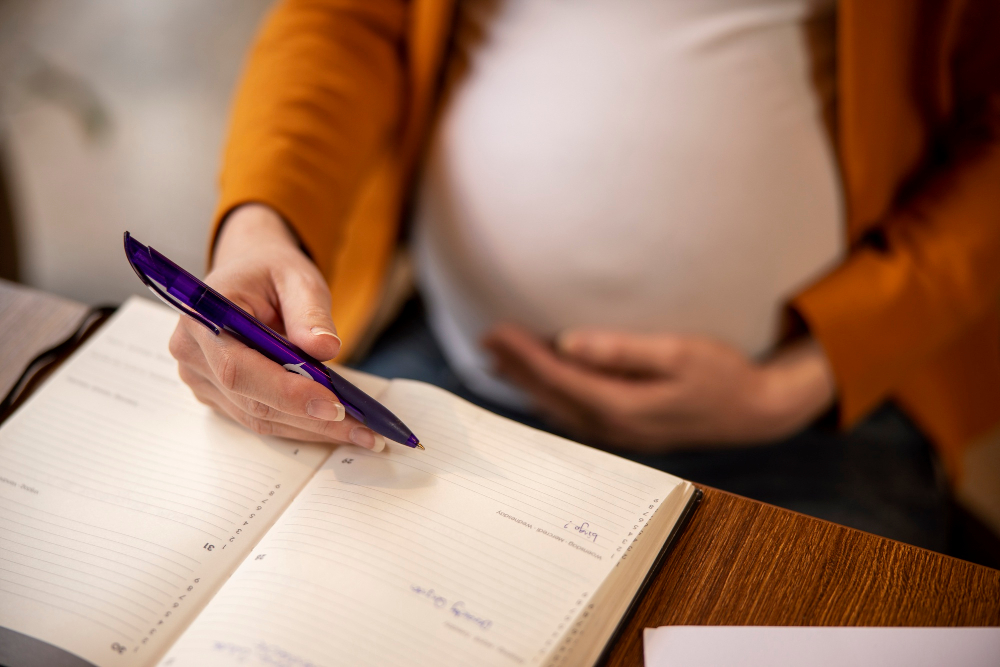What is safe and what to avoid

Pregnancy is a magical journey filled with excitement, transformation, and many questions especially around what is safe and what to avoid. From lifestyle habits to relationships and intimacy, navigating these choices is crucial to ensure a healthy and fulfilling pregnancy for both the mother and the baby.
In this blog, we’ll explore the do’s and don’ts of pregnancy with a special focus on intimacy and relationships. Let’s dive in.
Understanding the Pregnancy Cycle
The pregnancy cycle spans approximately 40 weeks, divided into three trimesters:
-
First Trimester (Week 1 to 12): The foundation stage, where the baby’s major organs begin to form.
-
Second Trimester (Week 13 to 26): Often considered the most comfortable phase.
-
Third Trimester (Week 27 to birth): Final growth and preparation for delivery.
Each trimester comes with unique physical, emotional, and hormonal changes that affect both the pregnant individual and their partner. That’s why it's important to approach every decision with care.
What is Safe During Pregnancy
✅ Open and Honest Communication with Partner
Pregnancy can bring emotional ups and downs. Sharing feelings, fears, and excitement strengthens the bond with your partner. It’s safe and beneficial to maintain emotional intimacy throughout.
✅ Sexual Intimacy (In Most Cases)
Unless advised otherwise by a doctor, sex during pregnancy is generally safe. It can even be a source of comfort and connection. Just be mindful of comfort levels, body positions, and open communication.
However, sex should be avoided if:
-
You have a history of miscarriage or preterm labor.
-
There’s vaginal bleeding or placenta previa.
-
Your doctor explicitly advises against it.
✅ Physical Affection
Hugging, cuddling, and kissing release oxytocin (the “love hormone”), which promotes relaxation and emotional bonding all very safe and healthy.
✅ Prenatal Classes Together
Attending prenatal or birthing classes as a couple not only prepares you both for delivery but also strengthens your team dynamic during this transformative time.
✅ Healthy Routines
-
Regular prenatal checkups
-
Balanced diet rich in nutrients
-
Gentle exercises like walking or prenatal yoga
-
Plenty of rest and hydration
What to Avoid During Pregnancy
❌ Overexertion in Physical Activities
While staying active is encouraged, avoid:
-
Heavy lifting
-
High-impact exercises
-
Contact sports or risky adventures like scuba diving or skiing
Always consult your doctor before starting or continuing an exercise regime.
❌ Unprotected Intimacy with a New Partner
If you're not in a monogamous relationship, protect yourself. STIs (Sexually Transmitted Infections) during pregnancy can harm the baby. Use protection and get regularly tested if you're at risk.
❌ Toxic Relationships or Emotional Stress
A stressful or emotionally abusive relationship can affect your mental well-being and pregnancy health. Seek support from a counselor, loved ones, or support groups if needed.
❌ Substance Use
Avoid:
-
Alcohol
-
Smoking
-
Recreational drugs
-
Excessive caffeine
These substances can harm fetal development and increase the risk of complications.
❌ Certain Foods and Medicines
-
Undercooked or raw meat and eggs
-
Unpasteurized dairy
-
High-mercury fish
-
Over-the-counter medications not prescribed by your doctor
Tips to Maintain a Healthy Relationship During Pregnancy
-
Check-in Often: Ask how your partner feels emotionally and physically.
-
Adjust Expectations: Be patient and understanding of changing moods and fatigue.
-
Celebrate Milestones Together: From hearing the baby’s heartbeat to choosing baby names do it as a team.
-
Be Supportive in Intimacy: Communicate about comfort, consent, and desires. Pregnancy can affect libido, and that’s perfectly normal.
-
Plan Together: Discuss future parenting roles, birthing plans, and support systems.
Related Articles

Foods for baby’s brain development

Herbal teas that help with cramps

Journaling your thoughts

Benefits of moving during periods

Baby development at 30 weeks

Staying cool and comfy

A Comprehensive Journey to Conception: The Complete Guide to Getting Pregnant

Common questions new moms ask